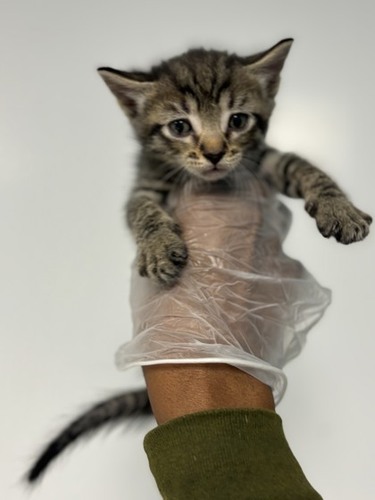

Kitten season in Florida begins in March and ends in November, but the number of litters this year in 2020 (big surprise that 2020 is different than previous years) has been noticeably more than in past years.
Every day, we receive calls from people who have either found kittens, are feeding kittens, want kittens removed from their property, have been bitten by kittens, would like to spay/neuter kittens, want us to medically treat the kittens they have in their home and then return the kittens for no cost to them, want us to come to get the kittens, would like the kittens spay/neutered but not brought back to where they were inhabiting, and much more.
There seems to be quite a bit of confusion about kittens and the parameters of ownership and caring, so let's explore the solutions available.
TNR- (Trap, Neuter, Return) Trap-Neuter-Return is the humane approach to addressing the community cat population's works. It saves cats' lives and is effective. TNR improves cats' lives, addresses community concerns, reduces complaints about cats, and stops the breeding cycle. TNR improves the co-existence between outdoor cats and humans in our shared environment. An authorized trapper place traps around the colony where the cats living. Once the cats are trapped, they are brought to, in this case, HHS to be spay/neutered. Their ear is clipped to identify them as being TNR'd so they are not trapped again in the future. People should contact the animal control department in their city to request a TNR.
The humane society is not authorized to come trap or pick up kittens. This is the responsibility of animal control and other organizations that do have TNR programs. HHS will perform the spay/neuter procedures, and the trapper(s) will return the cats to where they were trapped.
People will call and complain that the cats they are feeding won't go away. Cats will not go away if they have found a source of food. Chances are the cats are visiting several homes and being fed many times a day. We have seen some enormous feral cats that support this theory.
Don't try to trap or pick up a feral cat, even kittens, because there is an excellent chance they will bite or scratch you. There are thousands of rabies cases reported each year in the U.S., although most are wild animal cases, nine cats were reported to be rabid last year. Although rare, cat scratch fever is also a real disease and not just the name of a rock song from the seventies, so staying away from feral cats is a good idea. Many feral cats will rub up against your leg and even let you pet them, but the minute you try to pick them up, they may become very defensive. Let professional trappers and animal control take care of the trapping process.
We provide medical care to thousands of animals each year, but we are not a veterinary clinic for the public. If you have a cat that needs medical care, please visit your local veterinary office. If you have a cat, but it's not really your cat, and you don't want to spend money on the cat so you would rather have the humane society provide the medical treatment and then return the cat to you for no charge. That's not going to happen.
If the cat you have been feeding for the last two-years is suddenly no longer around, it could be for several reasons. The life expectancy of a feral cat is 3-5 years because they are at the mercy of the elements and wildlife in the area, not to mention motor vehicles. If the cat did not meet their demise, then they might be hanging out somewhere else where the menu is more to their liking. Getting attached to a wild feral cat is not a good idea.
Cats can make great pets. A stray cat can, at times, also make a great pet; however, along with the pet comes the responsibility to care for the cat. Food, medical, shelter, and more costs money if you are serious about having a pet cat. Adopting a cat from the humane society or rescue is the better option. The cats are already spayed/neutered, have up-to-date vaccinations and a microchip. Adopt, don't shop! It's safer and less costly.
Previous Article
Next Article